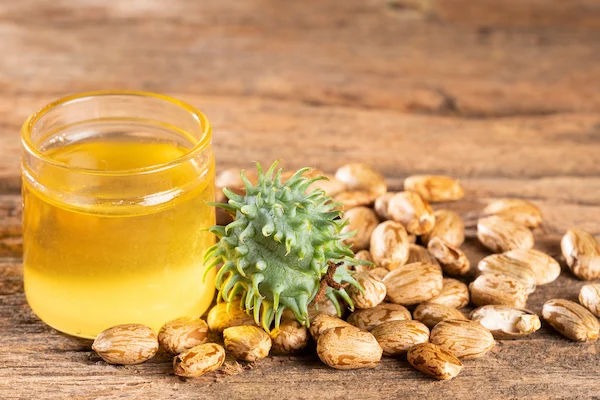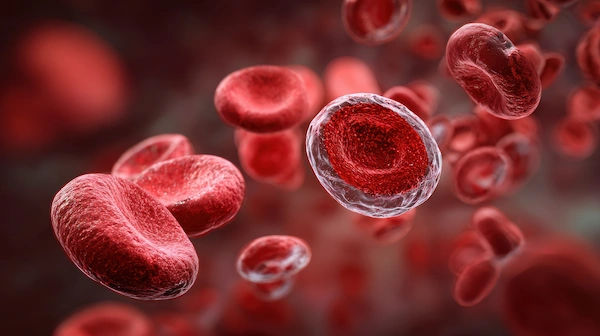Natural Remedies for Migraines: A Comprehensive Guide
Know about the natural remedies for migraines, the role of natural therapy, diet, lifestyle changes, physical and sensory therapies and more.

Written by Dr. Rohinipriyanka Pondugula
Reviewed by Dr. J T Hema Pratima MBBS, Fellowship in Diabetes Mellitus
Last updated on 13th Jan, 2026

Migraines are more than just headaches; they are a complex neurological condition characterised by intense, throbbing pain, often accompanied by nausea, sensitivity to light and sound, and visual disturbances. For millions of sufferers, finding relief is a constant battle.
This guide delves into the most effective, evidence-backed natural treatments for migraines, offering a holistic roadmap to reclaiming your life from the pain. We will explore everything from dietary adjustments and essential oils to advanced supplementation and lifestyle modifications, empowering you with a toolkit of strategies to find what works best for your body.
Understanding Migraines and the Role of Natural Therapy
Before diving into remedies, it's essential to understand what a migraine is. It's not merely a "bad headache" but a neurological event involving nerve pathways and brain chemicals. Triggers vary widely from person to person and can include hormonal changes, stress, specific foods, insufficient sleep, and environmental factors.
Natural migraine management employs a two-pronged approach: acute relief during an attack and preventive strategies to reduce the frequency and severity of future episodes.
Consult a Neurologist for Personalised Advice
The Power of Diet and Nutrition
What you eat plays a profound role in migraine pathology. Certain foods are notorious triggers, while specific nutrients can have a protective effect.
Identifying and Eliminating Common Food Triggers
The first step in a nutritional approach is to identify your personal triggers. Common culprits include:
Aged cheeses (contain tyramine)
Processed meats (contain nitrates and nitrites)
Alcohol (especially red wine)
Artificial sweeteners (like aspartame)
Monosodium Glutamate (MSG)
Chocolate and caffeine (both can be triggers or remedies, depending on the person)
Keeping a detailed food and migraine diary is the most effective way to pinpoint your specific triggers. Eliminate a suspected food for at least a month and monitor any changes in your migraine frequency.
Incorporating Anti-Inflammatory and Magnesium-Rich Foods
Adopting an anti-inflammatory diet can significantly reduce the baseline level of inflammation in your body, making it less reactive to triggers. Focus on whole foods:
Leafy green vegetables (spinach, kale)
Fatty fish (salmon, mackerel) are rich in omega-3s
Nuts and seeds (almonds, chia seeds, flaxseeds)
Fresh fruits (especially cherries and blueberries)
Furthermore, research has shown a link between magnesium deficiency and migraines. Magnesium helps regulate neurotransmitters and blood vessel constriction. Incorporate magnesium-rich foods like almonds, spinach, avocados, and black beans into your daily diet.
Essential Herbs and Supplements
When diet alone isn't enough, targeted supplementation can provide a significant boost. It's crucial to consult with a healthcare provider before starting any new supplement regimen.
Feverfew and Butterbur: The Herbal Front-Runners
Two herbs have withstood scientific scrutiny for migraine prevention:
Feverfew: This traditional herb is believed to reduce the frequency of migraine attacks by inhibiting the release of inflammatory substances and serotonin, a neurotransmitter implicated in migraines.
Butterbur (Petasites hybridus): Multiple studies, including those published in the journal Neurology, have found that butterbur extract is effective in reducing migraine frequency. Critical Note: Only use butterbur products labelled "PA-free," as the raw plant contains pyrrolizidine alkaloids (PAs) that can be toxic to the liver.
The Critical Role of Riboflavin (B2) and CoQ10
Riboflavin (Vitamin B2): A high dose of vitamin B2 (400 mg/day) has been proven in studies to be a safe and effective preventive therapy, likely by improving energy metabolism within brain cells (mitochondria).
Coenzyme Q10 (CoQ10): This antioxidant, which is also vital for mitochondrial energy production, has been shown to reduce migraine frequency by over 50% in some clinical trials.
Lifestyle Modifications and Mind-Body Techniques
Your daily habits and how you manage stress are inextricably linked to migraine activity. Implementing consistent routines can create a powerful protective effect.
Establishing Sleep Consistency and Hydration
Sleep Hygiene: Both too much and too little sleep are common migraine triggers. Aim for 7-8 hours of consistent, quality sleep each night. Go to bed and wake up at the same time every day, even on weekends.
Hydration: Dehydration is a primary trigger for many. Ensure you are drinking enough water throughout the day. A good rule of thumb is to drink enough so that your urine is light yellow.
Stress Management: Yoga, Meditation, and Biofeedback
Stress is perhaps the most universal migraine trigger. Mind-body practices can rewire your nervous system's response to stress.
Yoga and Tai Chi: These practices combine physical postures, breathing exercises, and meditation, which have been shown to reduce the frequency and intensity of migraines.
Mindfulness Meditation: Regular meditation practice can change brain structure and function, enhancing your ability to manage pain and emotional reactivity.
Biofeedback: This technique uses electronic sensors to help you gain awareness and control over physiological functions like heart rate and muscle tension, providing tangible tools to short-circuit a migraine at its earliest signs.
Physical and Sensory Therapies
When a migraine strikes, non-invasive physical therapies can offer significant natural pain relief for headaches.
Acupuncture and Acupressure
Acupuncture, a key component of Traditional Chinese Medicine, involves inserting fine needles into specific points on the body. The National Institutes of Health (NIH) recognises acupuncture as a viable treatment for pain, including migraines.
It is thought to work by stimulating nerves, increasing blood flow, and triggering the release of the body's natural painkillers, like endorphins. For immediate self-care, acupressure can be effective. Applying firm pressure to the LI4 point (the fleshy spot between your thumb and index finger) for several minutes is a well-known technique for relieving head pain.
The Soothing Power of Temperature Therapy
A simple yet powerful tool, temperature therapy can provide immediate sensory distraction and relief.
Cold Therapy: Applying a cold pack or wrap to the forehead, temples, or back of the neck can numb the area, constrict blood vessels, and reduce the inflammation that contributes to throbbing pain.
Heat Therapy: For tension that accompanies migraines, applying a warm compress to the neck or shoulders can help relax tight muscles. Some people find alternating between hot and cold to be most effective.
Conclusion: Building Your Personalised Migraine Management Plan
Navigating the world of migraines requires patience, experimentation, and a holistic mindset. The journey to effective natural migraine management is about building a personalised toolkit. Start by mastering the fundamentals: consistent sleep, adequate hydration, and a clean, anti-inflammatory diet. From there, you can layer in strategic supplements like magnesium, riboflavin, or feverfew, and explore powerful mind-body practices like yoga and meditation. Always discuss these natural approaches with your healthcare provider to ensure they are safe and appropriate for your specific health profile.
Consult a Neurologist for Personalised Advice
Consult a Neurologist for Personalised Advice

Dr Debnath Dwaipayan
Neurosurgeon
9 Years • MBBS, MS(Gen. Surgery), DrNB (Neurosurgery)
Delhi
Apollo Hospitals Indraprastha, Delhi

Dr. Uddalak Chakraborty
Neurologist
8 Years • MBBS, MD(GENL.MED.),DM(NEUROLOGY)
Kolkata
MCR SUPER SPECIALITY POLY CLINIC & PATHOLOGY, Kolkata

Dr. Ganeshgouda Majigoudra
Neurologist
10 Years • MBBS, MD ( GENERAL MEDICINE) DM (NEUROLOGY)
Bengaluru
Apollo Clinic, JP nagar, Bengaluru

Dr. Avinash Goswami
Neurologist
11 Years • MBBS, DNB (Medicine), Dr.NB (Neurology), MNAMS
Delhi
Apollo Hospitals Indraprastha, Delhi

Dr. Sanket Patel
Neurologist
4 Years • MBBS, DNB Medicine, DrNB Neurolgy
Ahmedabad
Apollo Hospitals - Gandhinagar, Ahmedabad, Ahmedabad




